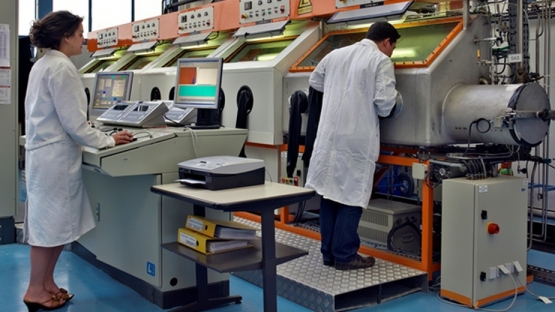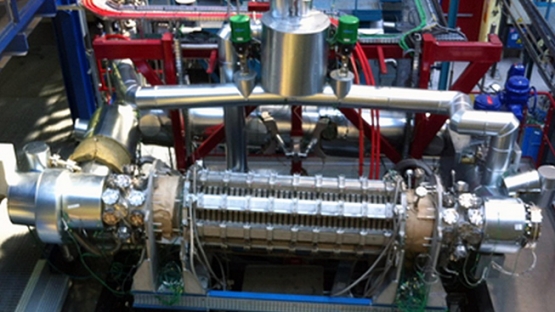The IAEA’s Catalogue of Facilities in Support of Liquid Metal-cooled Fast Neutron Systems (LMFNS Catalogue) is an online database of experimental facilities in support of the development and deployment of innovative Liquid Metal-cooled (sodium, lead and lead-bismuth) Fast Neutron Systems (LMFNS), both critical and subcritical.
The Catalogue includes an overview as well as detailed information on more than 200?experimental facilities under design, construction or operation. 19 institutions of 14 IAEA Member States participated in the development of the LMFNS database. The detailed facility profiles are categorized according to their most relevant research fields (main application). Multiple-choice filtering options by main research fields, by reactor type (SFR, LFR, cross-cut SFR/LFR application) and by country are available.
Two main groups of LMFNS facilities and cross cutting facilities are presented:
- Experimental facilities devoted to the Sodium cooled Fast Reactor (SFR) development: 101?profiles of Na-based facilities
- Experimental facilities devoted to the Lead cooled Fast Reactor (LFR) development: 93?profiles of Pb-based facilities
- Cross cutting facilities (applicable for both SFR&LFR), capable to support LMFNS development are noted and presented in both categories:?14 facilities.
The LMFNS Catalogue?is a useful tool for a wide range of governmental and private sector organizations responsible for the development and/or deployment of innovative fast neutron systems in countries with active programmes on these nuclear energy systems. By providing the end-users with detailed information on existing and future experimental facilities the open LMFNS database is aimed at facilitating cooperation between organizations with an active programme on fast neutron systems, enhancing the utilization of these facilities within the associated experimental programmes, and motivating the involvement of young engineers and researchers to be educated and trained in the field of advanced reactors.




